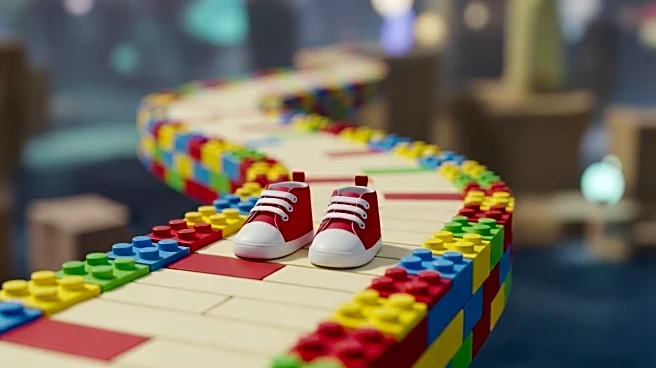What's Happening?
IGN has published a review of 'Baby Steps', a new physics-based walking simulator developed by Bennett Foddy, known for his previous works 'QWOP' and 'Getting Over It'. The game features Nate, a 35-year-old character who embarks on a hiking trip despite being unprepared. Players must control Nate's legs independently, making basic movement a challenging task. The game is noted for its eccentric story, humorous writing, and unconventional gameplay mechanics, which require players to master nuanced controls to navigate through various environmental obstacles.
Why It's Important?
The release of 'Baby Steps' adds to the growing genre of physics-based simulators that challenge traditional gaming mechanics. This game could influence future game design by encouraging developers to explore unique control schemes and storytelling methods. It also highlights the potential for humor and narrative depth in games that focus on seemingly mundane tasks. The game's reception may impact the popularity of niche gaming experiences and inspire similar projects that prioritize player skill and creativity over conventional gameplay.
What's Next?
As 'Baby Steps' gains attention, it may lead to discussions within the gaming community about the balance between difficulty and enjoyment in video games. Developers might consider player feedback to refine control mechanics or expand the game's narrative. Additionally, the game's success could prompt Bennett Foddy and other developers to explore further innovations in the walking simulator genre, potentially leading to sequels or new projects that build on the unique aspects of 'Baby Steps'.
Beyond the Headlines
The game's focus on controlling each leg independently raises questions about the accessibility of video games and the potential for inclusive design. While challenging, such mechanics could be adapted to create experiences that cater to diverse player abilities. Furthermore, the game's humorous and eccentric narrative may encourage discussions about the role of storytelling in video games, particularly in genres that traditionally prioritize gameplay over narrative depth.











